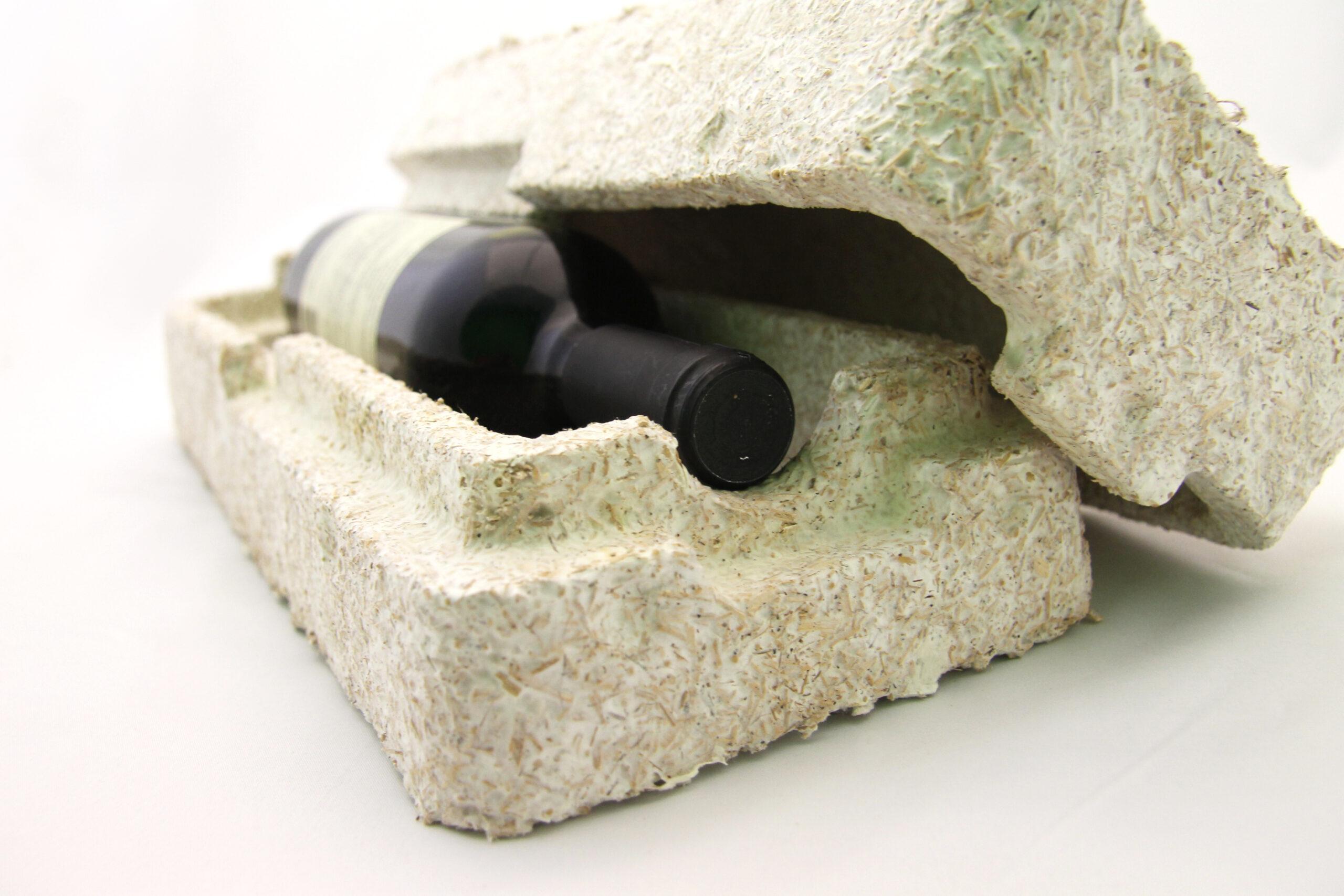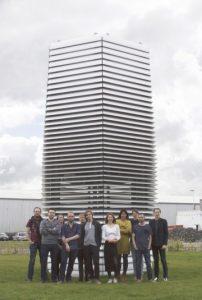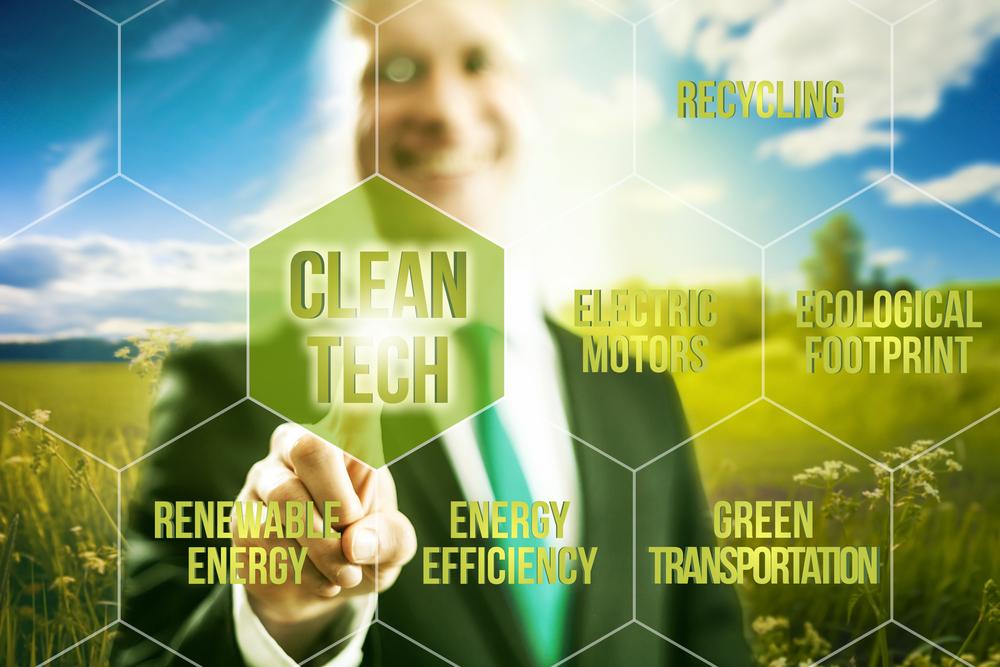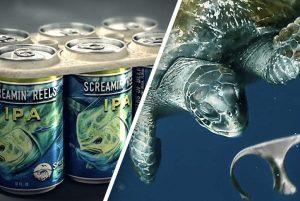CleanTech, or clean technology, emerged as an umbrella term for all services, technologies and products which hope to cater to the growing demand for solutions to environmental issues. It hopes to offer customers services or products, while at the same time generating further value for the wider community by tackling a more far reaching environmental issue. As Climate Change is rising on the global political agenda, consumers are also voicing demand for new ways to offer private sector solutions to environmental issues. CleanTech has therefore grown to become a more and more viable – and profitable – business concept.
CleanTech businesses are fast growing in numbers and enter into a wide range of different sectors. We found seven promising business projects which look to not only attract consumers but also promote sustainable living.
1. Ecovative Design
Ecovative is a New York based biomaterials company founded by the two mechanical engineers, Eben Bayer and Gavin McIntyre, in 2009.

The company produces eco-friendly materials such as mushroom packaging and bio-fabricated wood. In 2008 the two founders received a $750,000 grant from a green business competition. A year later started delivering its mushroom packaging to companies such as Dell and Crate & Barell.
Since then Ecovative has gained great influx in funding from private investors as well as government agencies. They reached close to $18 Million in funding in March this year.
The business expanded the product range and moved its production of mushroom packaging to a full-scale 20,000 square foot manufacturing plant in Troy, NY. This year the company launched Ecovative Interiors, a full range of interior design products grown from mushroom materials.
CEO and Co-founder Eben Bayer has spoken at multiple conferences, such as Ted Talks about the vlaue of CleanTech and particularly the possibility of mushroom replacing plastic in the future. Ecovative has also been given considerable attention in the press this year for their new innovations such as the “Grow-at-home modelling kits” and its funding success. It has also been reported that Ikea, the world’s largest furniture retailer, is looking into replacing current packaging with Ecovative’s mushroom option.
2. Big Belly Solar
Big Belly Solar produces rubbish bins for the use in public spaces, which uses solar power to compact waste. The rubbish bin is also network connected to deliver information to a computer or smart-device, making for easier handling and data analysis.
The CleanTech company, which was founded in Massachusetts in 2003, was named “Top Smart City Application” at the Internet of Things Awards in 2014/15. It’s business idea previously won $500,000 in funding from the Verizon Powerful Answers contest.
Big Bellys are now operating in 47 countries world-wide, including the UK and its’ business concept seems promising to expand further.
3. We Farm
We Farm is a UK based start-up which offers a digital solution to increase efficiency for farmers all around the world by sharing best practices, exchanging new ideas and answering each other’s questions via texts and an online platform.
The company’s webpage states their mission as:
“Small-scale farmers are highly vulnerable to the effects of climate change and they face many challenges including lack of access to traditional markets, agricultural inputs and finance.
Every day small-scale farmers develop a diverse range of innovative, low-cost solutions in response to the many challenges that they face. But with the majority of farmers living in remote areas without internet access, they cannot share this information with other farmers… Until now, with WeFarm.”
The CleanTech business was founded two years ago. It was named a Nominet Trust 100 company in 2015 and won the Google’s Impact Challenge the same year. It has since raised over £1 million in funding through grants.
The business is currently generating its revenues by charging governments, as well as suppliers and researches to access the data accumulated on their platform.
In the next 12 months We Farm is hoping to expand its network globally and grow its revenue stream by offering third party advertisement on their platform.
4. The Smog Free Project
 The Smog Free Project is a CleanTech idea developed by Dutch Designer and Artist Daan Roosegaarde. Together with a team of experts, he developed the largest existing smog vacuum cleaner to suck particles out of the air and create a clean air environment.
The Smog Free Project is a CleanTech idea developed by Dutch Designer and Artist Daan Roosegaarde. Together with a team of experts, he developed the largest existing smog vacuum cleaner to suck particles out of the air and create a clean air environment.
The project attracted much attention lately with the World Economic Forum launching a video describing the idea and developments of Roosegaarde.
What is very interesting about the project is that by a large part it is able to fund itself. The sale of jewellery, made from compressed smog the machines collect, raises revenue to build more machines.
The project has gained support from the Chinese Ministry of Environmental Protection. It will start a China Tour in September this year, which hopes to generate more attention and valuable publicity.
While the idea is not yet commercialised it provides valuable inspiration for business.
5. Modifi
Modifi is a start-up co-founded by Jim Poss, founder and former CEO of Big Belly Solar, earlier featured in this list. Together with a team of tech savvy professionals from BigBelly Solar, Oracle, Google and Amazon he founded Modifi in 2014.
Modifi transforms old unused mobile phones into sensors and uses such to track, measure and monitor assets, such as for example your home or business, from a mobile location over a remote platform.
While still in its infant shoes the company raised $675,000 in equity funding over the platform CrunchBase in October 2015 to expand its CleanTech business.
It is currently supplying its sensors to three major clients, managing 8.1m “end-points” (networked devices) and is hoping to grow this figure exponentially in the coming years.
6. Conceptos Plasticos
Conceptos Plasticos is a company, based in Colombia, which started out as a free housing project for the homeless but has since turned into a revenue generating business and flourished under growing demand for its’ services.
The business melts plastics and rubber waste into alternative construction foundations for both permanent and temporary housing. The material blocks, which have been compared to Lego blocks, can be assembled to create housing, shelters, classrooms, community halls and even entire buildings in an easy way in which an entire family or community can participate.
The company names governments, NGOs, Foundations, as well as private companies, as their current customers paying for the alternative and cheap housing solution which also helps to recycle plastic waste.
It is however not only generating income through selling its materials, but also by educating communities on how to use it and train people in the construction of the new housing solutions.
Conceptos Plasticos stated that it would take four people without construction experience only five days to assemble a family house. According to the company, a 14 family shelter would take 15 unskilled labourers only ten days to build.
The company is currently searching for additional funding on the Venture to expand it’s business operations further.
7. Saltwater Brewery’s edible six pack rings
In a new and innovative move to save on plastic rings in the packaging of beer can six packs, the Florida, US based Saltwater Brewery developed edible six pack rings made from barley and wheat left over in the brewing process.
The new business innovation does not only reduce wasting of production ingredients barley and wheat, but also helps to save animal lives. The plastic rings, which traditionally hold together can beer six packs, often end up harming animals which get caught in them or try to swallow the material. The new model completely decomposes but can also be eaten safely by animals.
The firm’s move to sustainable materials has been viewed as a great development in CleanTech, celebrated by environmentalists and innovators alike.
Katharina Fleiner 17/08/2016


